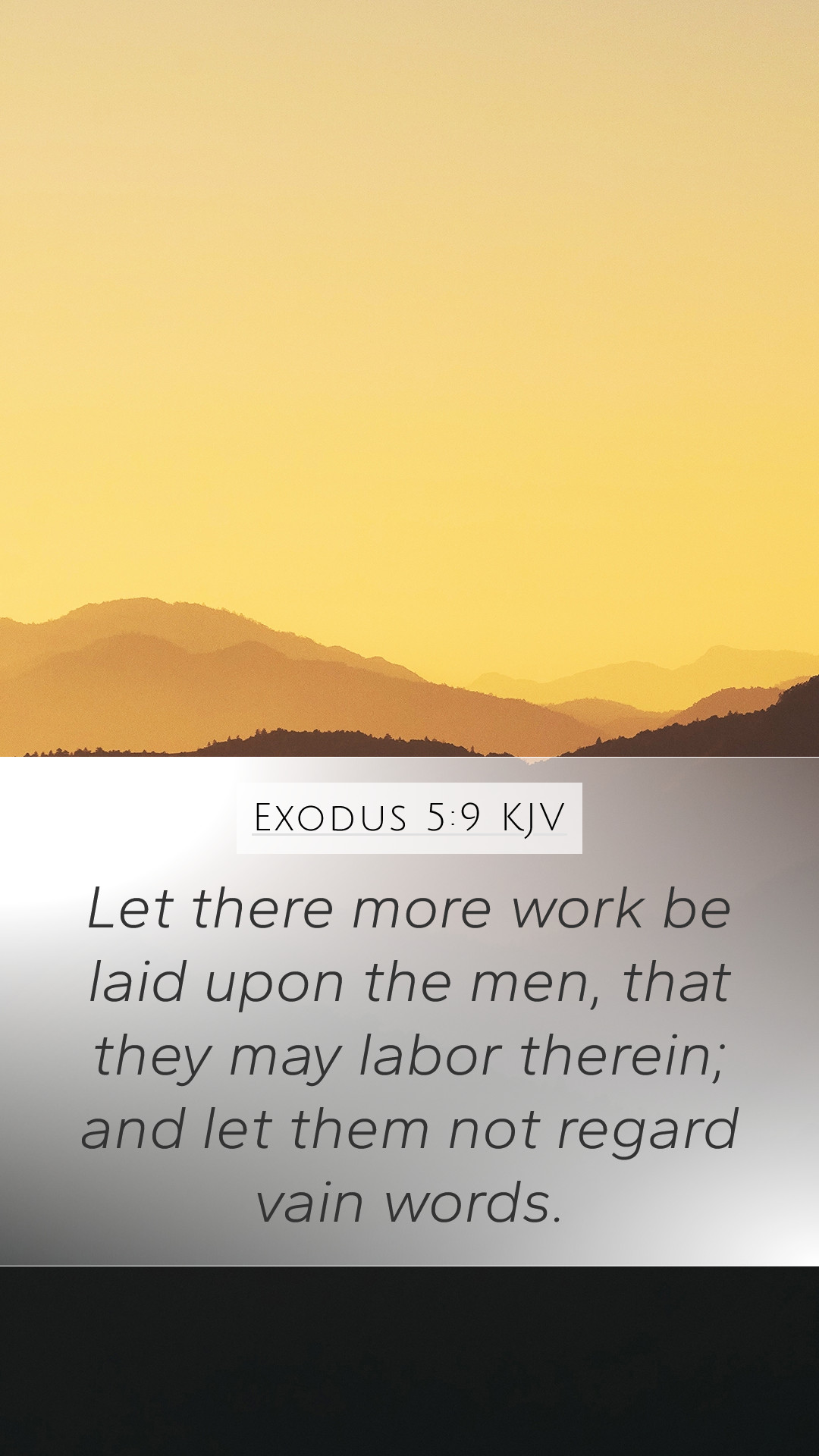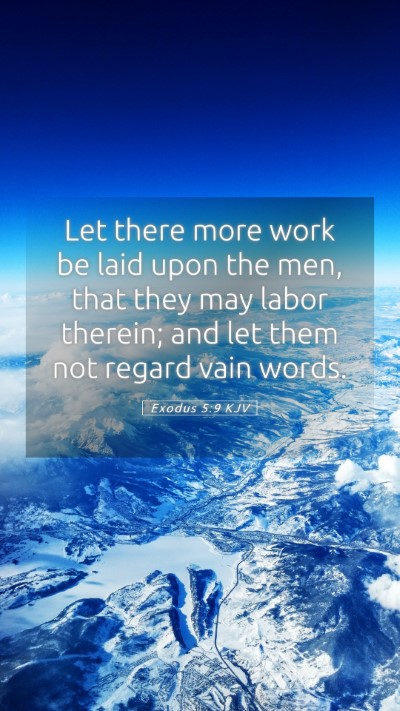Bible Verse Commentary: Exodus 5:9
Bible Verse: Exodus 5:9 - "Let heavier work be laid upon the men, that they may labor therein; and let them not regard vain words."
This verse illuminates the harsh realities of Pharaoh's oppression of the Israelites during their time of slavery in Egypt. The command to increase the workload serves as a tactic to suppress the people's hopes and distract them from the promises of liberation given to them by God through Moses.
Summary of Insights from Public Domain Commentaries
Matthew Henry's Commentary:
Matthew Henry emphasizes that Pharaoh’s response to Moses and Aaron's plea is marked by cruelty. His plan to impose heavier labor is a strategic move designed to prevent any contemplation of freedom. This demonstrates a severe spiritual condition, reflecting how oppression can stifle faith and hope among the people. Henry notes that Pharaoh dismisses the requests of Moses, showing a heart hardened against God’s will.
Albert Barnes' Notes on the Bible:
Albert Barnes adds that the command to increase the burdens highlights not just the physical labor but an escalation of mental and emotional strain on the Israelites. It reflects the broader theme in Scripture of oppression faced by God's people and reveals the intentions of tyrants to keep their subjects under control. Barnes emphasizes the phrase “vain words,” suggesting that Pharaoh views the message from Moses as empty promises, unworthy of the Israelites’ attention. This dismissal signifies a complete disregard for God's authority.
Adam Clarke's Commentary:
Adam Clarke interprets this verse as indicative of an underlying fear of Pharaoh regarding the growing influence of the Hebrew people. By intensifying their labor, he attempts to prevent them from becoming too united or powerful. Clarke suggests that this strategy reflects a misunderstanding of God’s ultimate purpose, as God is preparing the Israelites for deliverance, regardless of Pharaoh's efforts to thwart His plans.
Understanding Scripture and Context
The context of Exodus 5:9 is crucial for grasping its meaning. The Israelites have just been reintroduced to harsh servitude after Moses and Aaron confront Pharaoh. This moment marks a shift in their plight, as the former leniency in their labor is now completely stripped away. The verse serves not only as a description of physical oppression but also as a spiritual battle between the forces of God and the forces of evil represented by Pharaoh.
Cross References
- Exodus 1:14: The increased oppression of the Israelites under a new Pharaoh.
- Exodus 2:23: The Israelites crying out to God because of their harsh treatment.
- Psalms 105:25: God turned their hearts to hate His people, to deal craftily with His servants.
- Isaiah 19:4: A prophecy about the oppression of Egypt, illustrating God's judgment.
- Jeremiah 30:7: Context of suffering and deliverance for God's people.
Significance and Application
This verse speaks volumes about the nature of oppression and the challenges that come with faith. It offers a Biblical insight into how external circumstances can sometimes amplify trials, yet it is crucial for believers to remember the overarching sovereignty of God. The history contained within this passage provides essential lessons in trusting God amid suffering.
In applying the meaning of this verse to daily life, we can draw parallels to our struggles. Just as the Israelites faced severe trials, believers today may encounter various forms of oppression—be it spiritual, emotional, or social. The reminder here is to not lose sight of God’s promises. A firm reliance on divine providence enables us to navigate through periods of hardship with hope and strength.
Conclusion
Exodus 5:9 serves as a powerful reminder of the resilience of faith against formidable challenges. The exploration of this verse, through the lens of several respected commentaries, sheds light on the multifaceted aspects of oppression and enduring hope. By understanding the historical context, internalizing its spiritual lessons, and applying its teachings to contemporary life, one can gain a richer appreciation for this Scripture.
For those engaging in Bible study groups, utilizing Bible study tools, or seeking Bible study resources, the insights on Exodus 5:9 can enhance discussions on themes of suffering, deliverance, and the character of God in the face of adversity.


